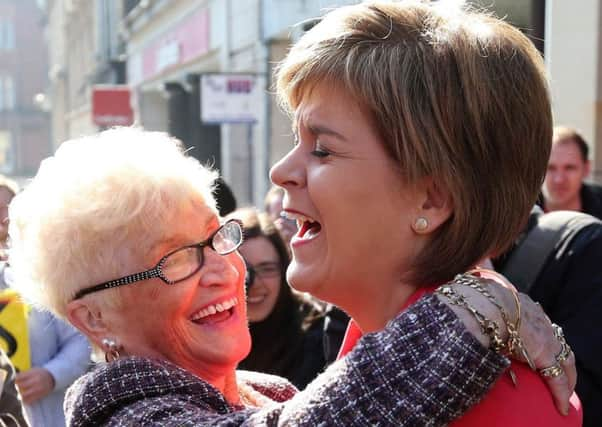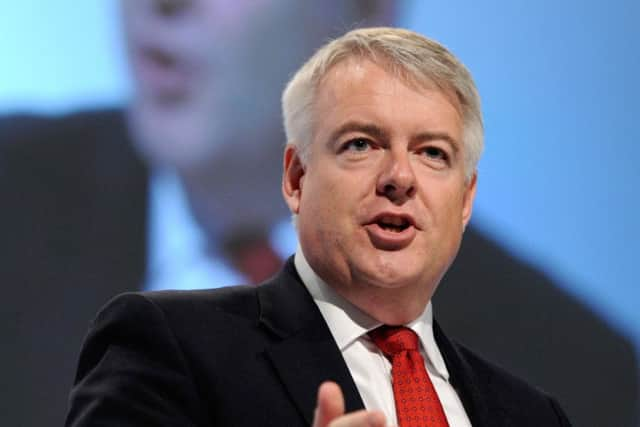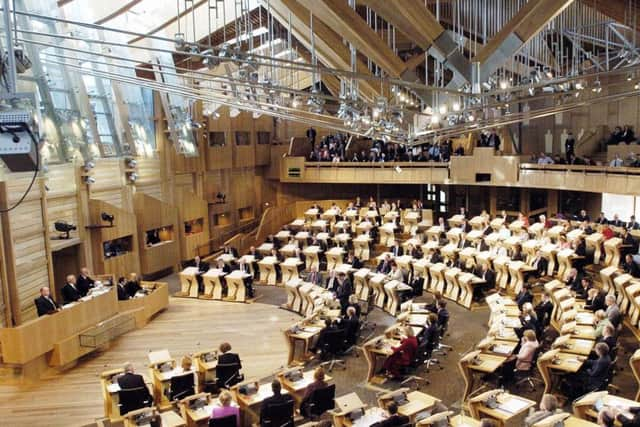Elections 2016: Scottish, Welsh and London voters head to polls


Scotland - results expected between 2am and 8am on Friday.
Voters in Scotland are electing 129 Members of the Scottish Parliament and it is the fifth election since Holyrood was estbalished in 1999. Scottish National Party leader Nicola Sturgeon aims to lead the SNP to an historic third term in power. The SNP’s majority will be the most interesting thing to watch, to see whether the party’s popularity at the General Election is sustained and they hold their 64 seats or make gains. Labour led by Kezia Dugdale, the Scottish Lib Dems led by Willie Rennie and Conservatives led by Ruth Davidson are fielding candidates in every one of the 73 constituency seats.
Scotland votes for its MSPs on an Additional Member System, which means people are given two votes to select - a constituency MSP elected through first past the post system in each of the 73 constituencies and
Advertisement
Hide AdAdvertisement
Hide Ad

56 regional MSPs, seven for each of the eight electoral regions in Scotland. For the first time 16 and 17-year-olds get to vote too.
Wales - result expected on Friday lunchtime.
Like in Scotland, Welsh voters have a choice to elect a constituency Assembly Member, known as an AM, and a regional representative too. There are 60 AMs altogether currently led by the Labour Party’s Carwyn Jones and the assembly holds its seat in Cardiff. It makes decisions on health, transport, housing and education.
Welsh nationalist party Plaid Cymru say they have set out their “most ambitious programme for government” since the start of devolution and hope to increase on their 11 seats. However UKIP also fancy their chances in Wales to make gains and came second in six parliamentary seats in the General Election. Saving the Port Talbot steel industry has become one of the biggest election issues for all parties fighting for for seats.


The result will be announced on Friday May 6 if there is a clear majority, but if not then the largest party could form a minority government, or may begin coalition negotiations.
Advertisement
Hide AdAdvertisement
Hide AdLondon Mayor - declares mid-afternoon to early evening on Friday.
So far this has been a bitter contest between the two main contenders, Sadiq Khan for Labour, and Conservative hopeful Zac Goldsmith. Mr Khan, the son of a London bus driver who represents Tooting, has faced a barrage of criticism for sharing a platform at pre-election political events with extremist speakers however he is currently poised to win and is ahead in the most recent You Gov poll. His main policy focus is on the city’s housing crisis and trying to make sure the city is affordable to Londoners. Staying well clear of Labour leader Jeremy Corbyn has also been high on his agenda and he has not called on his fellow London MP for support on the city’s doorsteps.
Mr Goldsmith, the MP for Richmond, made his final play for votes by promising to be the “greenest” mayor ever and has also fought his campaign on similar themes to Mr Khan, on making improvements to housing and transport.


Liberal Democrat Caroline Pidgeon has been the highest profile of the outsider candidates, and the Women’s Equality Party is likely to make some inroads in the London Assembly election, which is also held today with 25 seats up for grabs.
Advertisement
Hide AdAdvertisement
Hide AdThe full list of mayoral candidates: David Furness (British National Party); George Galloway (Respect); Sian Berry (Green Party); Paul Golding (Britain First); Zac Goldsmith (Conservative); Sadiq Khan (Labour); Ankit Love (One Love Party); Caroline Pidgeon (Liberal Democrats); Lee Harris (Cannabis is Safer Than Alcohol); Sophie Walker (Women’s Equality Party); Peter Whittle (UKIP); and Prince Zylinksi (Independent).
How does the voting system work? ...bear with me on this...
It is a supplementary vote system which is a touch more complicated than just marking a cross on a ballot paper as one would in local and General Elections.


This process is also used in the police and crime commissioner elections. Each voter has a first and second choice vote and if a candidate receives more than half of all the first choice votes they are elected immediately. If this does not happen, the two candidates with the most first choice votes go through to a second round. All other candidates are eliminated.
The second choice votes of everyone whose first choice has been eliminated are then counted. Any votes for the remaining two candidates are added to their first round totals.
The candidate with the highest combined total of first and second choice votes is elected as Mayor of London. Phew.